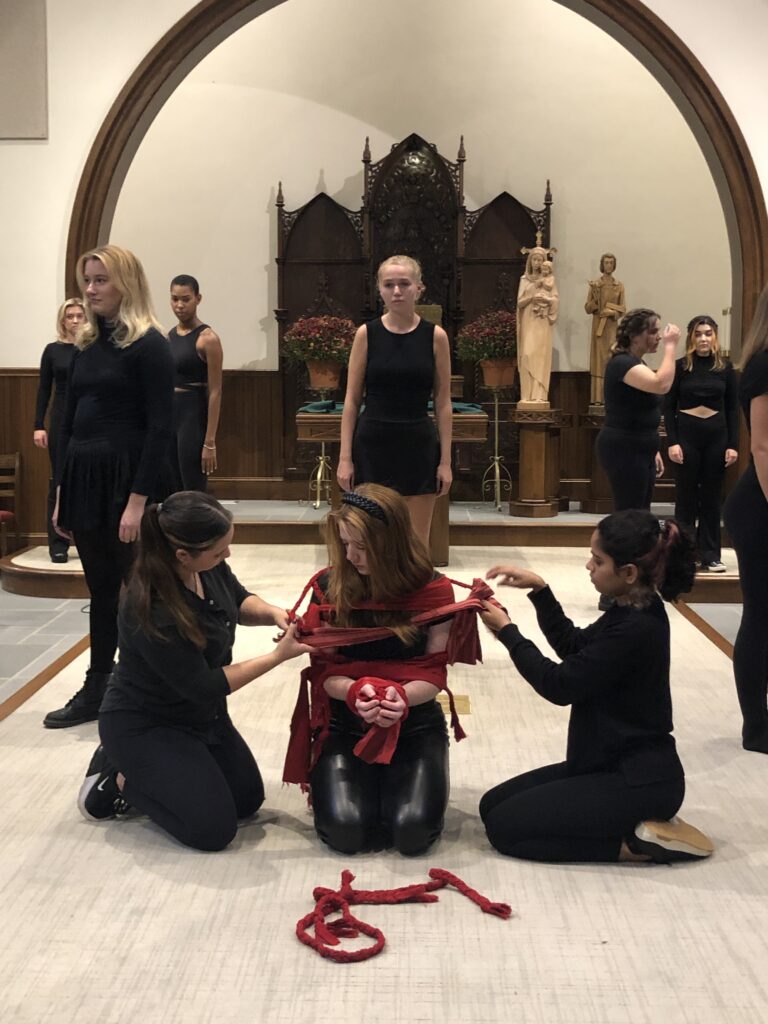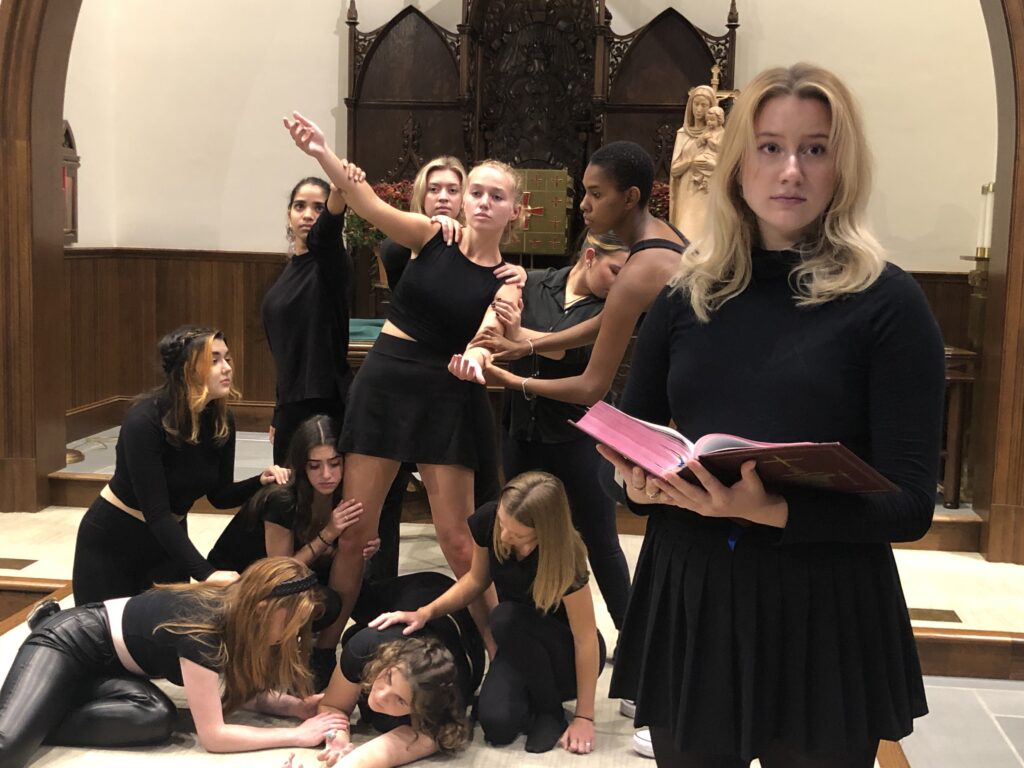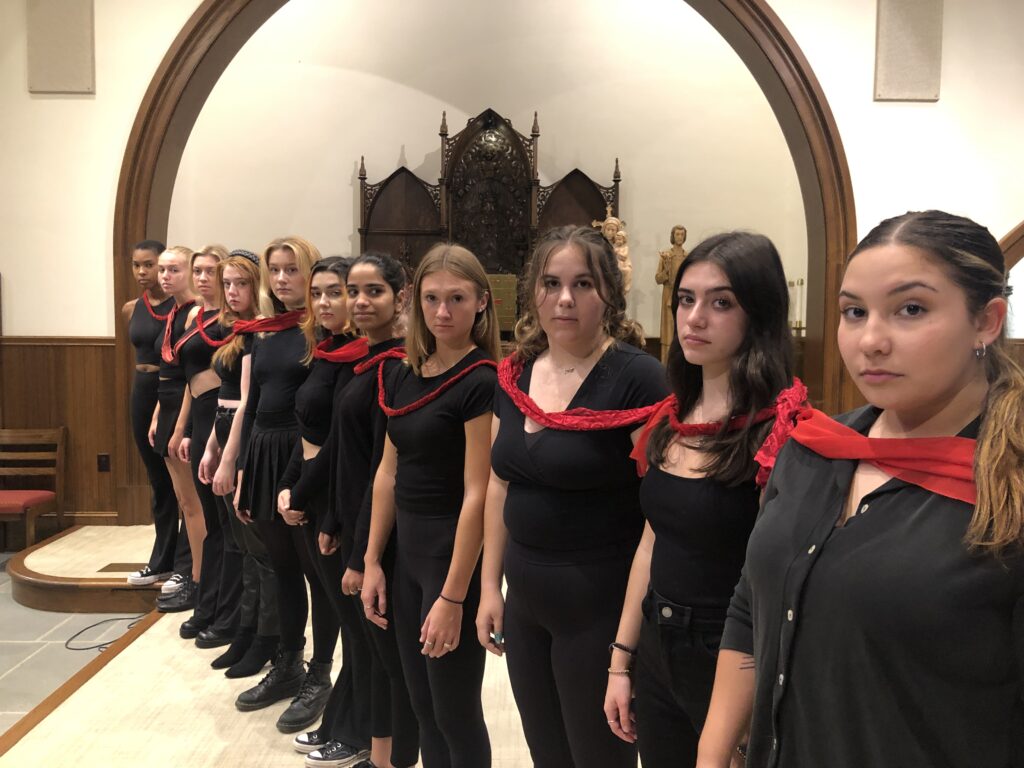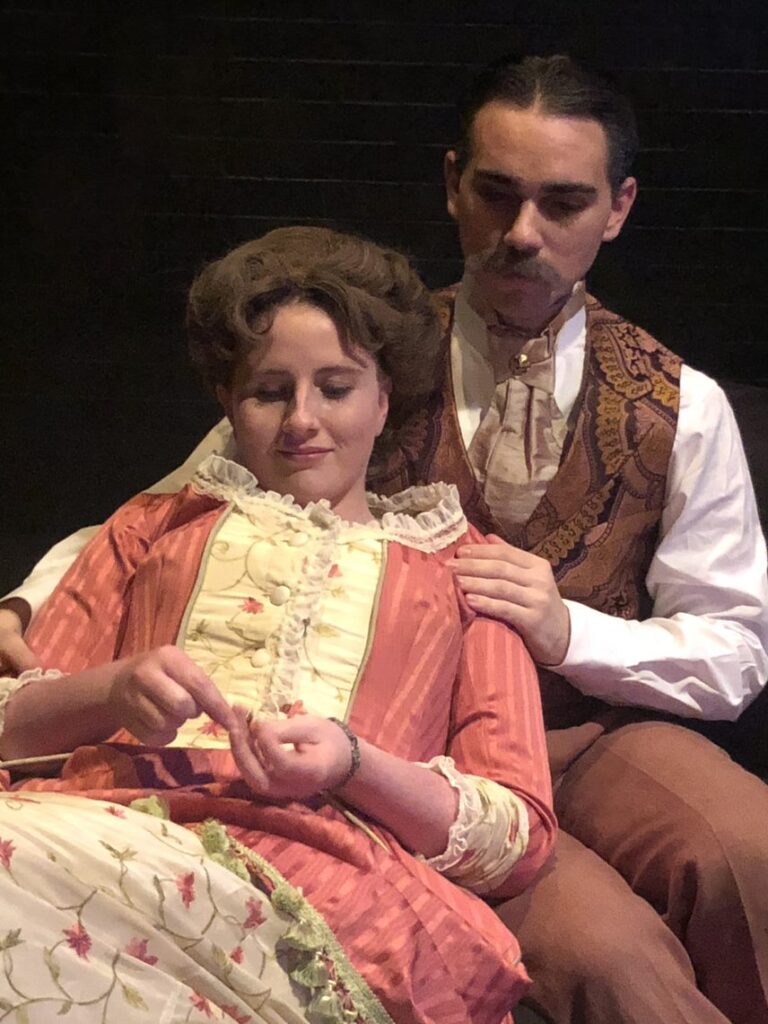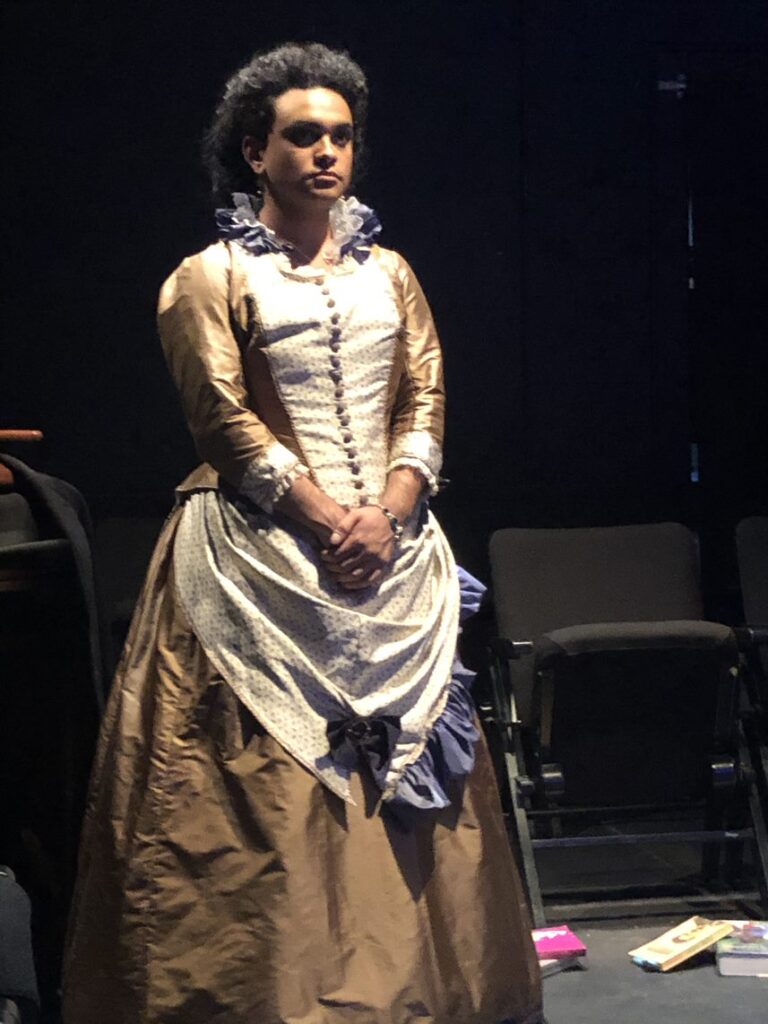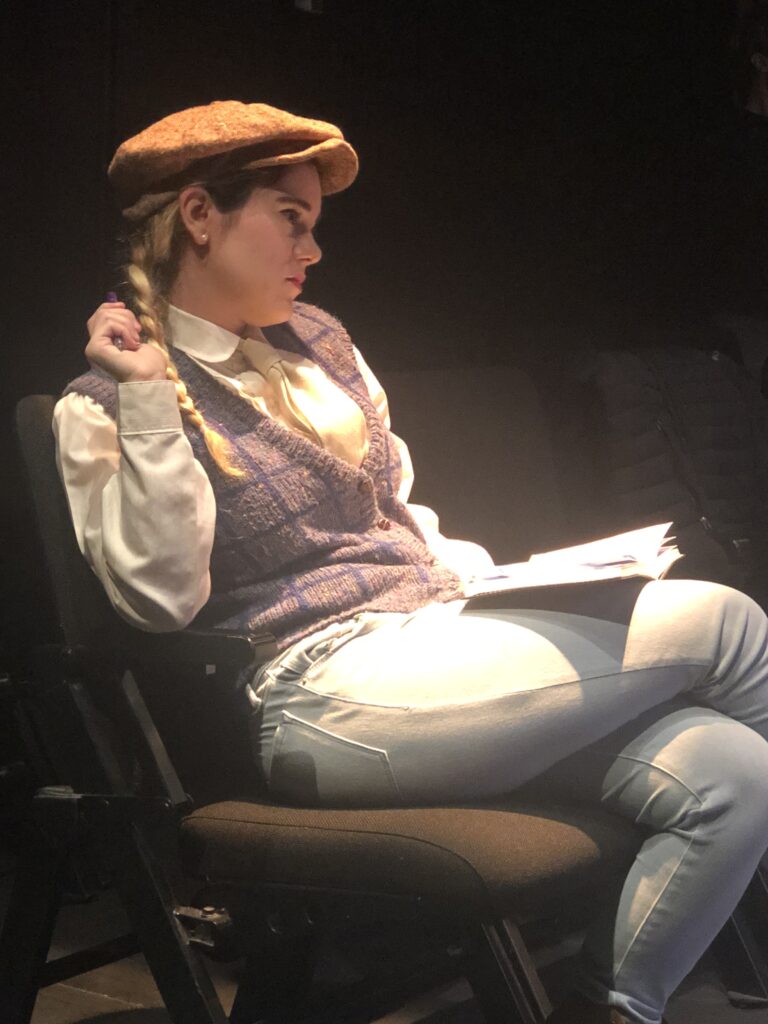Students will perform two plays exploring gender, ‘The Bible Women’s Project’ and ‘The Strindberg Experiment’

The Department of Music, Theatre and Dance is proud to announce that students in the theatre program will be offering two different plays that focus on gender and identity for its fall 2022 productions. Both plays will run on the same two weekends starting on Thursday, Oct. 27, and ending on Saturday, Nov. 5.
All members of Salve Regina’s community, as well as the public, are invited to attend. Attendees are encouraged to see both plays if they can, as they complement each other well.
Ticket sales are free to everyone, but there is a suggested $10 donation for each general admission ticket. Salve Regina students are free with a student ID. All seating is general admission, and reservations are encouraged. Proof of vaccination or negative test result is not required for entry. Masks are also not required but are certainly not discouraged.
To see performance times and to purchase tickets, please go here.
‘The Bible Women’s Project’
Using the true stories of 11 female theatre students, “The Bible Women’s Project” explores how women in the Bible and women today can build a sisterhood of support, trust and empathy. The show was created by Dr. Tara Brooke Watkins, program coordinator for theatre, alongside the cast.
“The Bible Women’s Project” was a community engagement activity in 2014 when Dr. Watkins noticed that young women couldn’t find themselves in stories in the Bible. Dr. Watkins decided to explore women from the Bible while also weaving modern women’s stories into a moving theatrical experience that changes depending on the women in the play. For Salve Regina’s production, the students’ own stories and what they’ve learned through wrestling with the content of the Bible are woven throughout the production.
“These stories are specific to these Salve students,” said Dr. Watkins. “They’re all just raw, beautiful stories about how they’ve been affected by the church or their religious upbringing. For example, the story of Sarai and Hagar is initially told through the format of a scandalous talk show. But then right after that, a performer will share a short story about how something has happened to her, and so it goes back and forth between theatricality and sharing true stories.”
Anna Annese ’26, a double major in elementary education and theater arts, said that she is thrilled to be offering audience members such an incredible experience.
“People should come see ‘The Bible Women’s Project’ because it has so much to offer for anyone,” she said. “If you know the Bible, if you don’t, if you grew up in the church , if you didn’t – it doesn’t matter. This is a play about women whose stories can be relatable to anyone in our audience. I hope that when people come and see our show, they feel supported, seen and moved.”
Please note that this play addresses issues of sexual violence.
Performances are in Our Lady of Mercy Chapel on Thursday, Oct. 27 at 7:30 p.m.; Saturday, Oct. 29, at 1 p.m.; Friday, Nov. 4, at 7:30 p.m. and Saturday, Nov. 5, at 7:30 p.m. For tickets, please go here.
‘The Strindberg Experiment’
“The Strindberg Experiment” is an experimental theatre piece that explores two plays by a 19th-century Swedish playwright, August Strindberg–considered the most prolific Swedish author and playwright of all time.
Strindberg has been called things like the father of modernism, a misogynist, an early feminist, a schizophrenic, an atheist and a devoted spiritualist. Yet although theories abound on who Strindberg really was, no one has theatrically experimented overtly with his own philosophy of theatre – that theatre was a scientific experiment to discover the truth about oneself.
“I have long been intrigued by Strindberg’s label as a staunch misogynist,” said Dr. Watkins. “I’ve never seen him that way and have been more fascinated by his raw expression of self through what he called a vivisection of his soul – dividing himself into many parts, letting those parts be characters in a play, and writing those parts to see what he could discover about himself.”
In both plays by Strindberg, the characters share a struggle with gender identity, according to Winder Landaverde ’23, a double major in theatre arts and creative writing and publication. Landaverde plays Miss Julie, who is described as a “man hating half-woman” and likes to challenge the social order.
“This is an original script based on two plays by August Strindberg, so already it’s unique because we’re telling two stories and combining them to form one cohesive play,” Landaverde said. “We’re using it to experiment with the idea that Strindberg wrote these plays to look within himself and discover something about his gender, something no other playwright was doing during the 19th century.”
Please note that this play addresses issues of suicide.
Performances are in Megley Theatre in Antone Academic Center on Friday, Oct. 28, 7:30 p.m.; Saturday, Oct. 29, at 7:30 p.m.; Thursday, Nov. 3, at 7:30 p.m. and Saturday, Nov. 5, at 7:30 p.m. For tickets, please go here.

